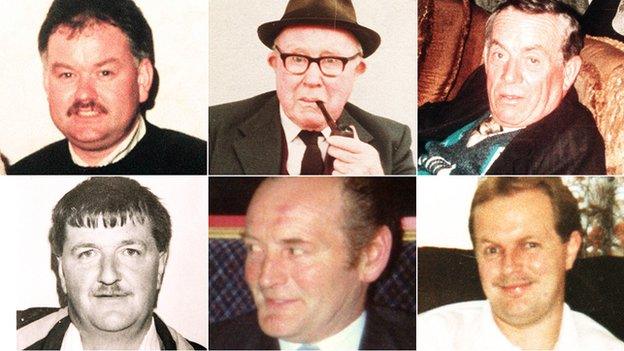Loughinisland killings: Bid to quash ombudsman's report rejected
- Published
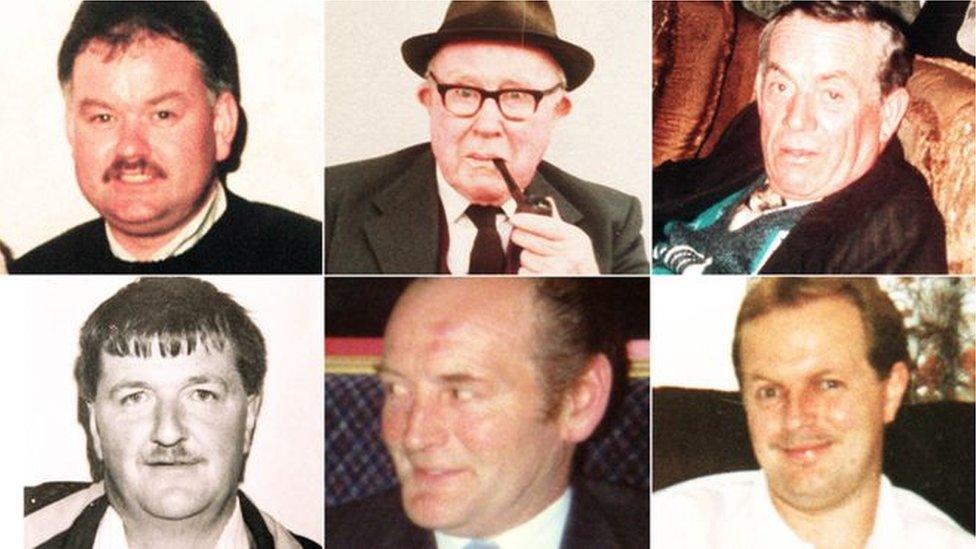
Six men were shot dead as they watched a football match in a pub in Loughinisland in 1994
A judge has rejected an application to quash a Police Ombudsman's report into the Loughinisland killings.
Six Catholic men were shot dead as they watched a World Cup match in the County Down village in 1994.
In June 2016 the Police Ombudsman ruled there had been collusion between some police officers and the gunmen.
In December 2017 Mr Justice McCloskey ruled that the finding of collusion was "unsustainable in law".
In January, he announced this aspect of the case was to be reheard before a new judge.
Lawyers for the ombudsman and victims' families had asked Mr Justice McCloskey to withdraw.
But at the High Court on Thursday, Mrs Justice Keegan rejected an argument that the ombudsman did not have legal authority to say there was collusion.
She held that the ombudsman had not acted outside his statutory powers.
Two retired police officers had attempted to have the report quashed.
Loughinisland families' 'sense of relief'
In the ruling in December 2017 Mr Justice McCloskey said the authors of the Loughinisland report were "careless, thoughtless and inattentive in the language and structuring of the document".
He said the effect of the ombudsman's ruling was that none of the police officers accused of collusion had the protection of due process of the law.
'Strong public interest'
But Mrs Justice Keegan rejected the officers' argument.
She said: "This is a legacy case, involving the death of six people in circumstances where serious questions have been raised about police conduct.
"There is an obligation to investigate such matters and a strong public interest to know the outcome."
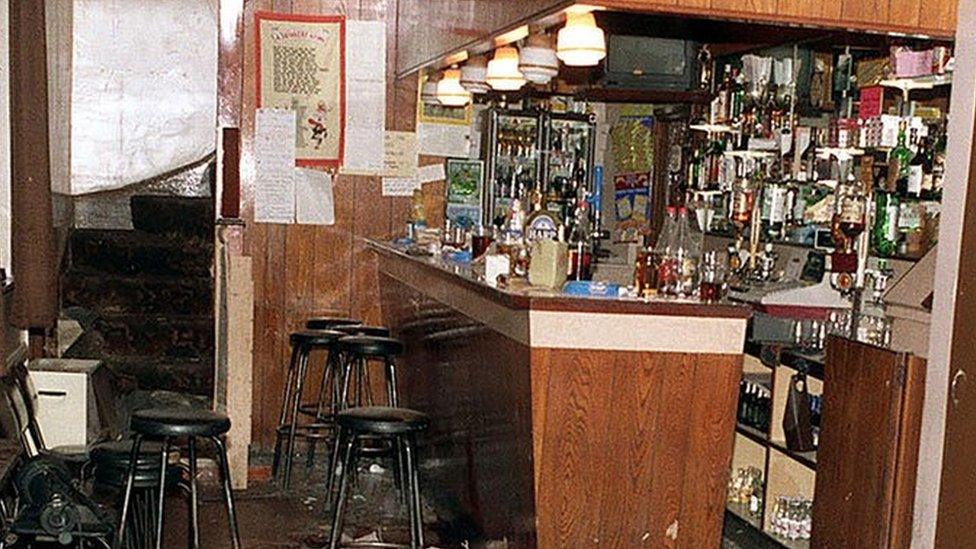
Gunmen burst into the Heights Bar and opened fire
The men who died were Adrian Rogan, 34, Malcolm Jenkinson, 53, Barney Green, 87, Daniel McCreanor 59, Patrick O'Hare, 35, and Eamon Byrne, 39. Five others were wounded.
Loyalist gunmen burst into the Heights Bar and opened fire on 18 June 1994 as they were watching the Republic of Ireland play Italy in the World Cup.

Analysis: High stakes for ombudsman
Vincent Kearney, BBC News NI Home Affairs Correspondent
The stakes could scarcely have been higher for the office of the Police Ombudsman.
If the judge had ruled that Dr Michael Maguire did not have the legal authority to say there had been collusion in Loughinisland attack the implications would have been huge.
The work of his office would have been severely undermined.
Previous reports where the office had made a finding of collusion would have been open to legal challenge.
Current investigations into similar allegations would have been mothballed. Future investigations could not have taken place.
A submission opposing the application to have the Loughinisland report quashed said the essential hallmark of the office was "the ability to determine complaints from the general public and to report publicly on the determination of those complaints."
Barra McGrory QC argued that if the office was not able to report publicly on its findings its value would be diminished to a point of irrelevance.

No-one has ever been convicted over the attack.
'Relief'
Emma Rogan, whose father Adrian was killed in the attack, spoke outside the High Court.
"It's a sense of relief," said Ms Rogan.
"This time last year, we were despaired at what happened. Today, justice has been restored and dignity has been restored to our loved ones and their memories.
"I do this for my daddy. I am his voice - I fight his corner."
She added: "The Police Ombudsman can now go ahead and release reports that families are waiting on.
"Some families have been waiting over 25 years for the details of what happened to their loved ones and that's just not on."
- Published21 December 2017
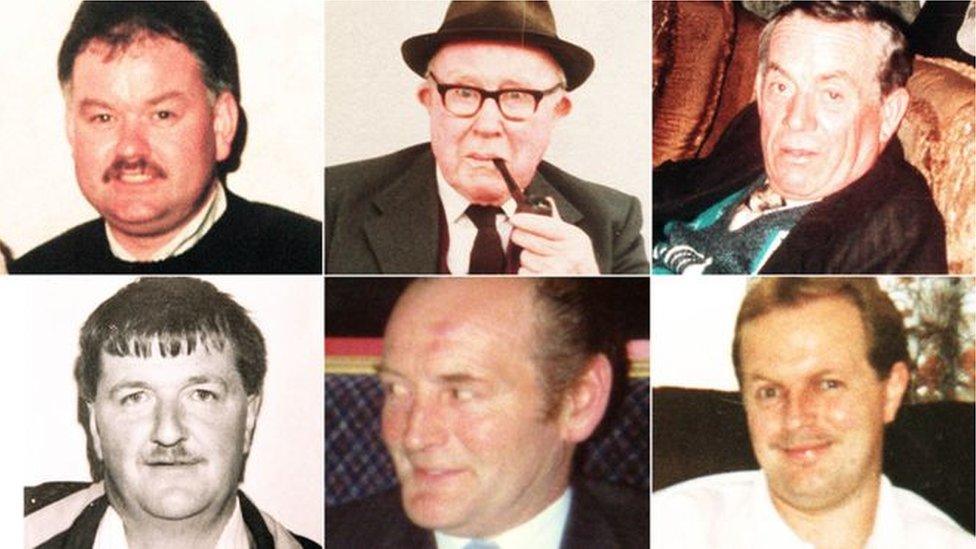
- Published9 June 2016
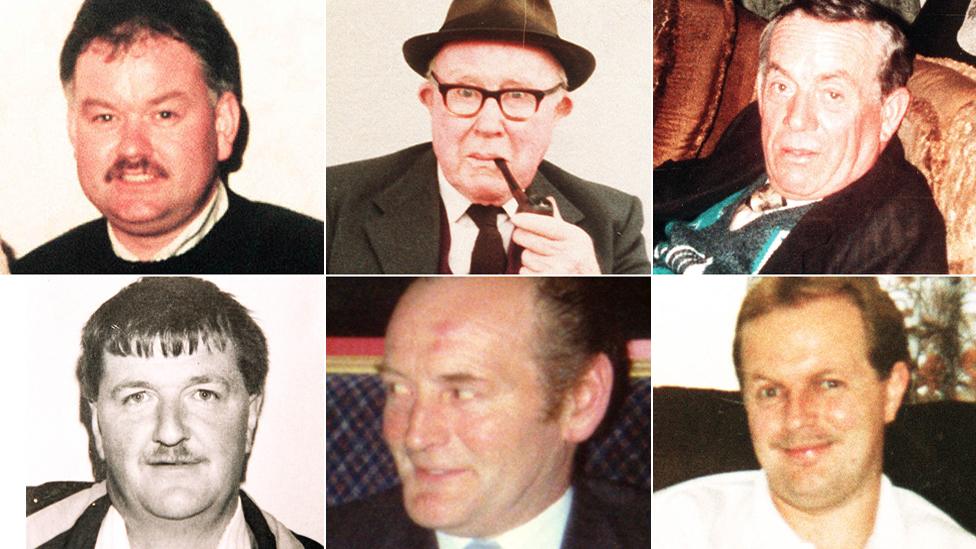
- Published9 June 2016
